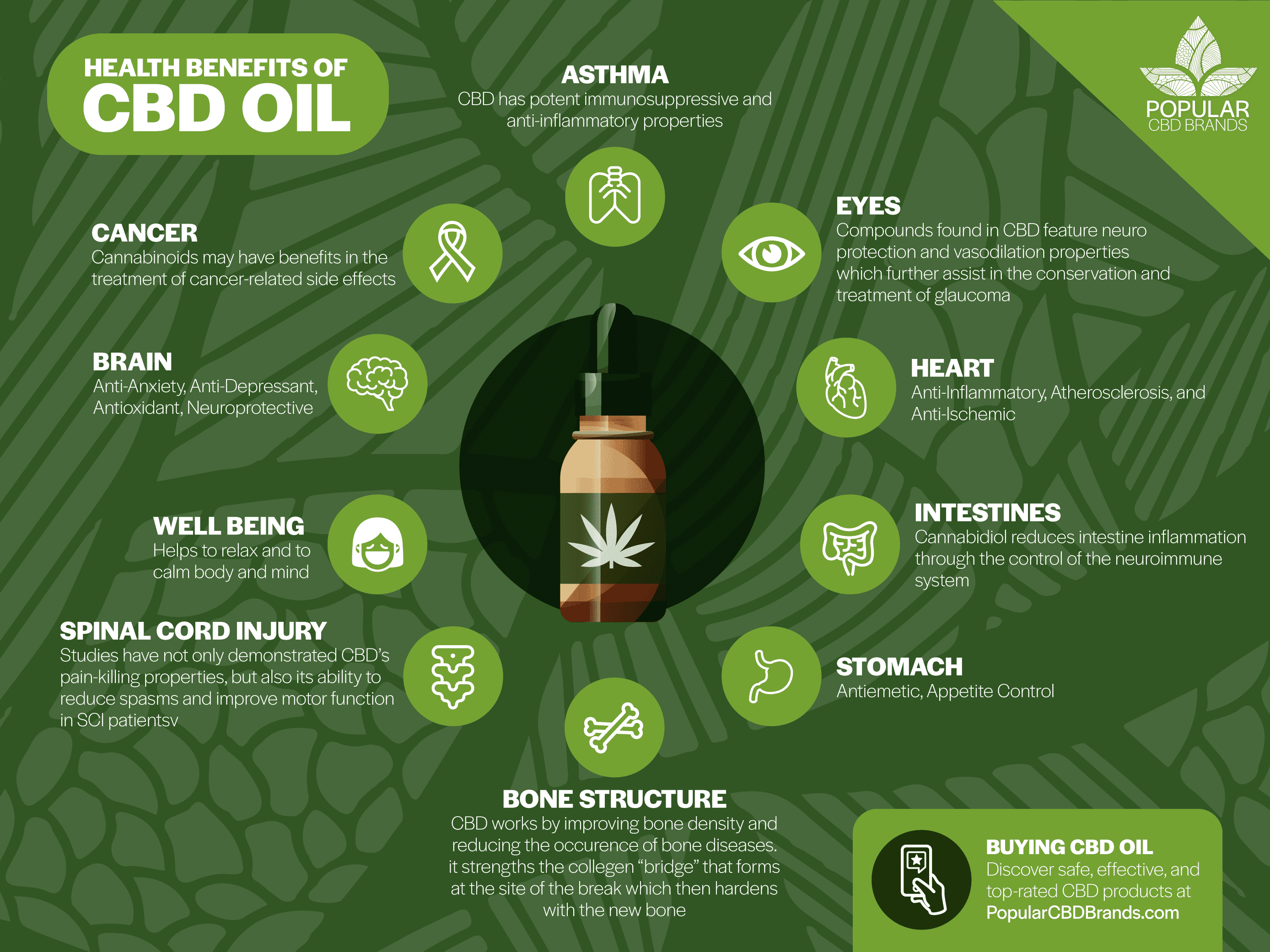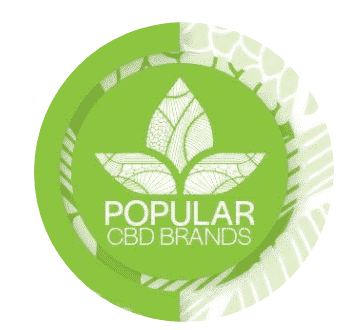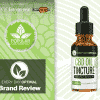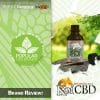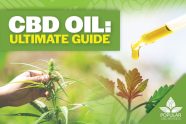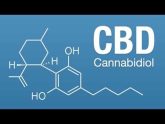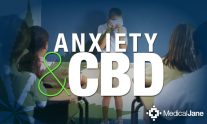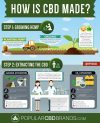More and more people are taking CBD every day, but are they taking it correctly? This article describes what people should be counseled on before trying out CBD.
As a pharmacist, one of the most important parts of the job is counseling patients. This ensures that they have the knowledge about their medications and how to properly take them. When it comes to health supplements such as CBD, this becomes a little more complicated due to the limited research behind it. However, we still do our best to provide the most accurate information we can based off the data we have so far.
Safety and Side Effects
First, let’s discuss the safety of CBD. CBD actually has a favorable safety profile, which just means that it is safe to use and will not be toxic in larger quantities. In fact, the World Health Organization (WHO) even commented on the safety of CBD. The WHO is an international organization like our FDA who looks after public health concerns. WHO released a report in June 2018 stating that CBD is safe and non-habit forming, or non-addictive. After studying use in animals and humans, the conclusion was that there were no safety concerns. They also stated that CBD is well tolerated and has a very good safety profile. There is no evidence of any public health or safety issues related to CBD use according to this report. They also stated that no conversion of CBD to THC (the component that makes people feel high) occurs in humans who received an oral dose. They cited several studies where oral CBD administration resulted in no circulating THC in participants. Reviews of toxicology studies also showed no significant issues.
The National Institutes of Health (NIH) released a comprehensive review of clinical data and relevant animal studies relating to CBD. NIH reported that most studies were performed for treatment of epilepsy and psychotic disorders. Primary reported side effects included tiredness, diarrhea, and loss in appetite and/or weight. Like most medications, another side effect that people may experience is an upset stomach. Compared to other drugs, these side effects are relatively mild.
Different Forms of CBD
CBD can come in a variety of forms. These can include oils/tinctures, concentrates, capsules, chews, creams, salves, chewing gums, vape oils, suppositories, crystals, dabs, sprays, and even beauty products such as sleeping masks, CBD-infused mascara, and lip balms. It seems like pretty much anything you can think of has CBD anymore. The forms that you would typically see are oils, capsules, chews, and topicals such as salves or creams. Below are the correct ways to take the various dosage forms.
Oils
Oils typically come in dropper bottles and are meant to be applied sublingually. Sublingual just means under (sub) the tongue (lingual). The drops should be placed under the tongue and held there for 30 seconds to 1 minute to allow it time to absorb, then swallowed. This is preferred to directly swallowing the oil because it is better absorbed into the bloodstream through the sublingual glands in the mouth. If the oil is swallowed it will go through the digestive system and the CBD might get broken down before being absorbed, losing some of its effectiveness. Some of the oils are flavored, which makes it more tolerable to take. However, other oils have the natural flavor which may not have a favorable taste so many recommend having a drink, such as juice or soda, ready after you take the oil to help get rid of the taste.
Capsules
Capsules are probably one of the easiest forms of CBD to take. You can add them to your daily medication or vitamins/supplements that you already take. The capsules can come in a variety of doses, so how many and how often to take them each day vary. Usually, you will see 10 mg to 30 mg doses. Depending on what dose you want, you could take the capsules once daily, twice daily, or even three times a day. Although capsules allow you to keep track of your dosages easier, it is harder to adjust your doses with more flexibility. Just like you would with other capsules, you swallow the capsules by mouth with at least 8 oz of water.
Chews
Chews are similar to gummy vitamins. They usually provide smaller amounts of CBD than capsules or oils. They offer more tolerability flavor wise and may be easier to swallow than other dosage forms. Chews might contain additional vitamins in them as well. Like the capsules, depending on the dose you want, you could take them once daily or more. You should chew it and then swallow it, like you would with other gummy products.
Topicals
Salves and creams are different types of topical forms. Salves are similar to an ointment which are used to help protect the skin. Creams are similar to lotion products. The difference is that ointments are more oil based and therefore stickier, whereas as creams have a water base and are able to spread easier. Because of this, ointments are typically for smaller parts of the body and creams are used for larger parts of the body. Topicals have a more direct effect on skin and joints compared to the whole body, and should be applied directly to the affected area.
With the oral dosage forms, upset stomach may be a side effect as mentioned above. Therefore, taking these with meals or snacks could help decrease this effect. Also, they would be more likely to make you feel tired, so it is best to take them at night or when you know that you will be staying home (not driving or having to concentrate) to see what effect CBD might have on you. For all the products unless stated otherwise, it is important to keep them at room temperature, away from changes in temperature (like heat), away from moisture (like a bathroom with a shower), and light (like direct sunlight). This will help you to avoid any changes to the stability of the products.
 CBD Dosage
CBD Dosage
The correct dose for anyone varies depending on height and weight, genetics, age, and further factors such as other medications or supplements that a person is taking. Therefore, finding the dose that works for you involves “testing” yourself to see what is best. Generally speaking, it is always best to “start low and go slow”. This means starting with the lowest dose and steadily increasing it every week, every two weeks, or every month, depending on what you feel comfortable with.
Regarding CBD, the dose is not set in stone. Dosages vary from study to study, and the correct dose might depend on what you are using the CBD to help with. According to the comprehensive review mentioned above, chronic use and doses up to 1500 mg per day have been repeatedly shown to be well tolerated by humans. The review also mentioned that a clinical study in a small group of children being treated for epilepsy used a 5 mg/kg starting dose and raised it to a maximum of 25 mg/kg daily (1 kg = roughly 2.2 lbs). Another clinical study in a larger group of children and young adults with epilepsy utilized a dose of 20 mg/kg daily. However, sometimes children may metabolize or break down drugs faster than adults, so adults might need a smaller dose.
As for how often to take CBD each day, that again would depend on your daily dose. If you are taking larger doses of CBD, it is probably best to spilt up the dose into two or three separate doses per day. For example, if you want to take 600 mg daily, you could split this up into 300 mg twice a day or 200 mg three times a day. This will allow for a more consistent absorption of CBD throughout the day, whereas if you take one large dose all at once, you may not get the effect throughout the entire day. This could also depend on what you feel like when you take CBD. You may only want to take it at night to help you relax and get to sleep, so one dose per day would be appropriate. Basically, it all depends on what you are using it for and how you tolerate CBD. If you need help figuring this out, talk with a health care professional who can guide you in the right direction.
Drug Interactions with CBD
First off, you should always consult with your physician or pharmacist when starting or stopping any new medications or supplements. They can help you figure out if there are any interactions with them and adjust doses or tell you how to take them differently to prevent the interactions.
The main potential issue discussed in the review mentioned above was drug interactions. Because CBD (and many drugs and other chemicals) are processed heavily by the liver, there is a potential for drug interactions if the person is taking other prescription drugs or even over the counter drugs and supplements. This will sound familiar to people that are taking cholesterol drugs and are told not to drink a lot of grapefruit juice. Grapefruit juice inhibits enzymes in the liver that process drugs. Enzymes are proteins in the body that can break down substances. CBD acts on similar enzymes as grapefruit juice, known as CYP3A4, to slow them down. In both cases the amount of the other drugs and/or supplements circulating is likely higher than intended (the processing and removal by the liver is slowed down which results in “backing up” in the blood system). Adjusting the amount of CBD generally can take care of this problem should it ever arise.
The cytochrome P450 system is a system of enzymes in the liver that metabolize many drugs in the body. For example, CBD is broken down by specific enzymes in that system like CYP3A4, CYP2C9, and CYP2C19. As mentioned above, CBD is an inhibitor of CYP3A4, but also of CYP2D6. This means that some prescription drug levels may be increased in the body by taking CBD. This can lead to unnecessary side effects or toxicities. With CYP3A4, this can include antibiotics, HIV medications, cholesterol medications, and many others. With CYP2D6, this can include antidepressants and opioids as well. It could also cause the blood thinner, warfarin, to stay in the body longer leading to increased blood levels of the drug and result in possible bleeding.
However, these interactions still need to be studied further to say with more certainty what will interact together. One study in epileptic children did show that taking CBD increased clobazam (a seizure medication) levels in the children. Additionally, according to the product information on Epidiolex, an FDA approved drug with CBD, taking CBD with valproic acid (a seizure medication) may result in increased risk of liver damage. However, this was with higher doses of CBD.
As far as contraindications, it seems that CBD does not have many. Contraindication just means that you cannot take two things together. According to the Micromedex drug information database, the only contraindication would be if you had an allergy to cannabinoids or any of the oils in the products. If so, you should avoid CBD products or choose a different product with an alternative oil. Always be sure to look at the ingredients in CBD products if you have any allergies or sensitivities.
CBD and Alcohol
There is still a lot to figure out with the combination of CBD and alcohol. Interestingly enough, in a small study they found that CBD and alcohol resulted in lower blood levels of alcohol than alcohol by itself. However, the effects of both were the same as alcohol alone. Therefore, it is probably okay to have alcohol when taking CBD, but as with everything you should use moderation. If you are taking other medications or supplements as well, it is best to talk with a health care professional to see if alcohol consumption is appropriate.
CBD and Caffeine
Many companies are mixing CBD with coffee, which contains caffeine. As you probably already know, caffeine can speed you up and CBD can slow you down. So, combining the two might result in them canceling each other out. However, this is likely only with higher doses of CBD. Although combining the two seems to be safe, more research is needed to determine the combined effects.
Need to know even more? Check out our CBD Full Guide.
Final Thoughts
It is important to educate yourself on all the medications and supplements that you take. Knowing how to properly take them, any possible interactions, and side effects allows you to keep an eye on any concerns that might arise. Taking charge of your health and being informed about products like CBD allows you to be proactive about your health and will help you have less complications in the future.
References:
- http://www.who.int/medicines/access/controlled-substances/CannabidiolCriticalReview.pdf
- cbd oil and chronic kidney disease
- https://www.ncbi.nlm.nih.gov/pmc/articles/PMC5569602/
- https://www.nejm.org/doi/full/10.1056/nejmoa1611618
- https://www.ncbi.nlm.nih.gov/pubmed/22166891
- https://www.ncbi.nlm.nih.gov/pubmed/24160757
- https://www.ncbi.nlm.nih.gov/pubmed/21821735
- https://www.ncbi.nlm.nih.gov/pubmed/26114620
- https://www.accessdata.fda.gov/drugsatfda_docs/label/2018/210365lbl.pdf
- Micromedex® (electronic version). IBM Watson Health, Greenwood Village, Colorado, USA.
- https://www.ncbi.nlm.nih.gov/pubmed/120541
Dr. Irene Zollars (Pharm D/MBA)
Latest posts by Dr. Irene Zollars (Pharm D/MBA) (see all)
- FAB CBD Review - November 26, 2019
- Is CBD The Answer to Autoimmune Diseases? - March 7, 2019
- Can CBD Heal the Brain? - February 21, 2019
